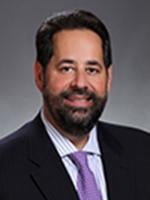On November 13, 2015, Ahmad Feras Diri, of London, was arraigned for his alleged involvement in a conspiracy to illegally export laboratory equipment, including items used to detect chemical warfare agents, from the United States to Syria. The arraignment comes almost three years after Mr. Diri was originally indicted on the charges in November 2012. The arraignment highlights the efforts and distances which U.S. law enforcement will go in pursuit of those assisting the military regimes of Syria and Iran.
According to the indictment, from 2003 until November 20, 2012, Mr. Diri; his brother Mowea Diri, a citizen of Syria; d-Deri Contracting & Trading, a business located in Syria; and Harold Rinko, a U.S. citizen and 73-year old Pennsylvania resident, conspired to export EAR-controlled laboratory equipment from the United States through third party countries to customers in Syria without the required U.S. Commerce Department licenses. Some of the items allegedly exported include: a portable gas scanner used for detection of chemical warfare agents and a handheld instrument for field detection and classification of chemical warfare agents and toxic industrial chemicals. Pursuant to the Export Administration Regulations (“EAR”), a license is required to export and reexport to Syria all items subject to the EAR, other than limited and certain categories of food and medicine.
Mr. Diri was arrested in the United Kingdom on March 14, 2013 in connection with the charges. After more than two years of extradition litigation in the U.K., Mr. Diri finally was extradited to the United States in November 2015.
This case serves as a good indication of U.S. law enforcement’s continued focus upon Syria during this time of violence and upheaval in the region. It also reaffirms the growing international cooperation in export control investigations and prosecutions which frequently require the sharing of information across many borders and time zones as well as the willingness to pursue extradition of defendants for offenses which were not frequently the subject of extradition requests 10 or 15 years ago. Just as national economies have become increasingly interconnected, so also have national law enforcement and prosecutorial offices become increasingly interconnected across international borders. We will continue to publish updates as new developments arise.




 />i
/>i

